Some thoughts on the day after. What now?
What next for Mark Carney, Pierre Poilievre, Jagmeet Singh, even Elizabeth May and democracy.
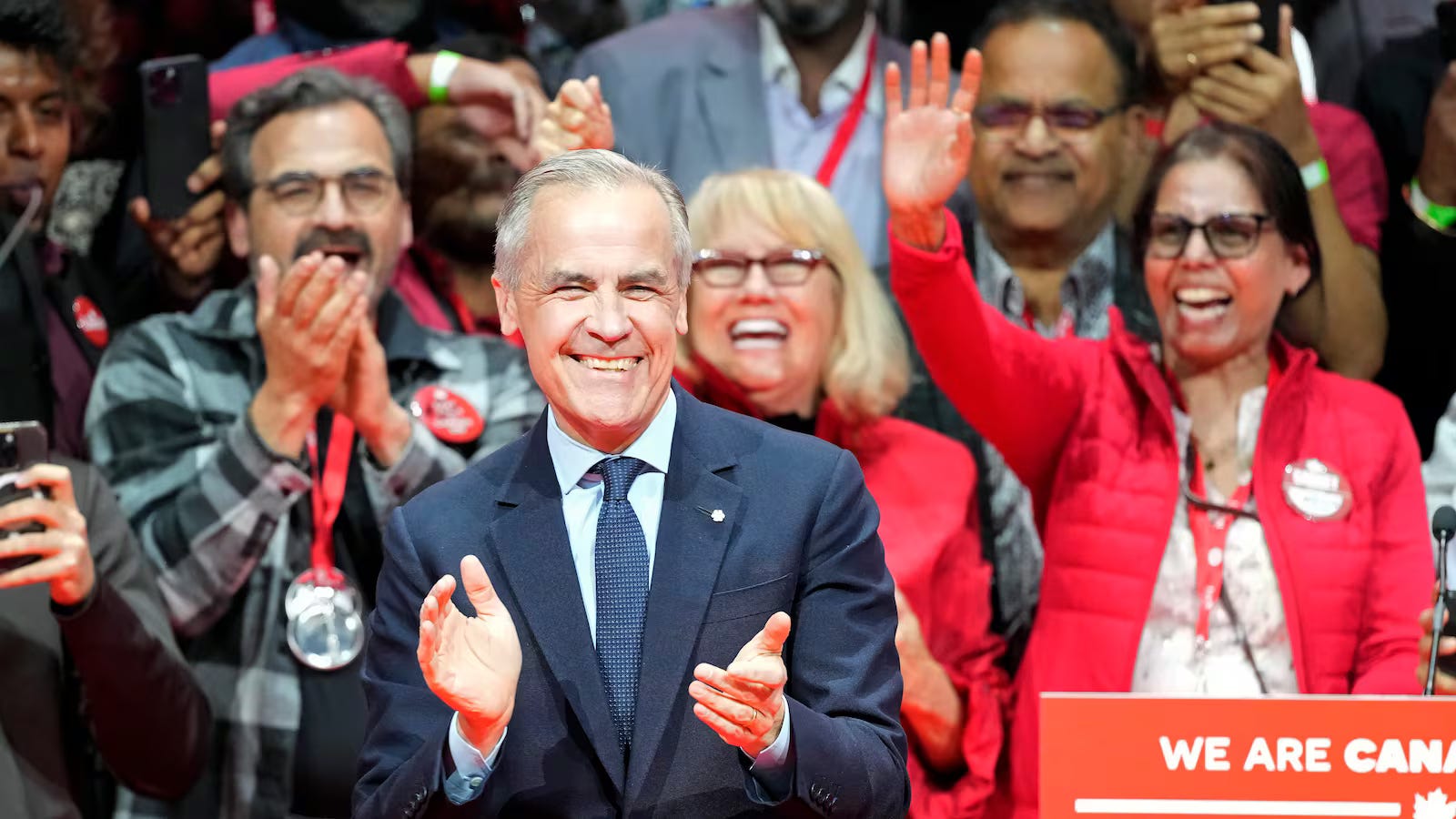
Mark Carney
Canada’s new prime minister received a solid mandate from Canadian voters to form a minority government. He’s as legitimate as any prime minister has ever been. Like it or not. I don’t. But, he deserves congratulations for pulling off a stunning victory.
I’m most looking forward to finding out who Mark Carney actually is.
Since announcing his candidacy for leadership of the Liberal Party of Canada, Carney has been thoroughly, completely and utterly scripted. His only ex tempore comments have been a few snarky, disdainful responses to reporters asking, to his mind, disrespectful questions. He didn’t look good in those moments and the scriptwriters reined him in.
During his victory speech, last night, a still-scripted Carney tried to get the crowd going with a (scripted) “Who’s ready?! Who’s ready?!” chant prompt delivered like a grandpa struggling to read a cue card at a talent show for the very first time.
His every waking moment has been directed and produced by the same backroom Liberal cabal that brought us Dalton McGuinty, Kathleen Wynne and Justin Trudeau. I can’t shake the feeling Carney was never even asked what should be included in “his” campaign platform. He was simply handed talking points.
Fortunately for him, the cabal is very good at what it does. It reassembled the flaming Hindenburg of Trudeau’s Liberal government, live on air, and sold it to Canadians as tastefully smoked.
Will Carney form his own cabal? Who will be in it? He appointed Marco Mendocino as his chief of staff – will the disingenuous, mistake prone Mendocino be Carney’s backroom architect?
Perhaps the real Carney will emerge as the risen leader Liberals hope and pray he will be. He’s a political neophyte. Will he be able to chart his own course? Can he break with political convention?
It’s entirely possible. Maybe he is as pragmatic as a banker should be. Perhaps, he will eschew the Liberal dogma that brought Trudeau down.
Perhaps, Carney will invite the Conservatives to join with him in a “war cabinet” as Canada shifts onto a combat footing to face off with Donald Trump’s destructive globe-eating agenda. It’s doubtful. Equally doubtful is that the Conservatives would accept. But, it would absolutely signal a break with “politics as usual” and reinforce Carney’s promise of unifying change.
Perhaps, things will work out. Let’s all hope so.
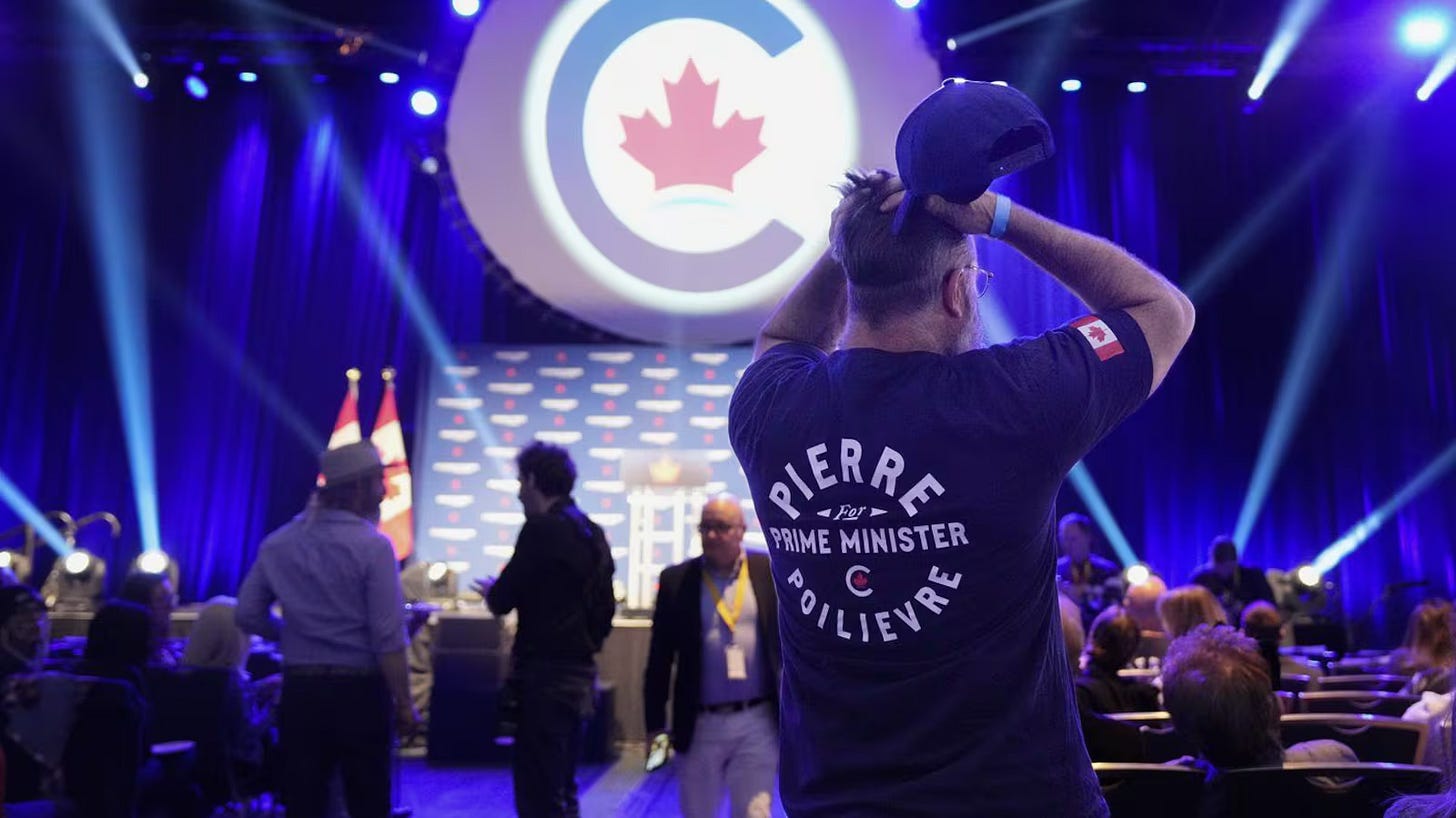
Pierre Poilievre
Pierre Poilievre is hard to like. He’s so scary, he frightened all the NDP voters into backing a Bay St. banker to protect their status quo.
Can he learn? Can he change? If so, the Conservatives shouldn’t dump him. But, they should (and must according to their constitution) hold a leadership review within short order. That will be an opportunity for him to make his case. It would be nice if the Conservatives didn’t have to start over from scratch. Again. As they have the last four elections. It takes time for Canadians to get to know new leaders. The Conservatives have a recent tradition of not giving them that time.
Under Poilievre, the party grew its seat count by 24 seats. That’s a win in most books, but still not enough to form government this time around. Conservatives are the choice of younger Canadians. If that continues, the future is bright for the party. Many Canadian boomers who have grown fat and rich under the Liberals will be dead the next time around, their places taken by younger voters casting more ballots. It would be nice for Conservatives to build on that success, rather than bin it.
Poilievre, however, is an unlikeable guy. I’m sure he’s nice in person. But few Canadians will ever find that out. Most will see and hear him in clips on social media. And there, he comes off as abrasive, mean, destructive. Few people want to vote for a bully. He needs to learn how to lead: how to inspire Canadians with a vision for a better future. He hasn’t learned this yet, but he showed some signs of change in the later stages of the campaign. If he can, and he’s willing to try, and he’s willing to dump the negative nellies from his staff and hire people who can build an inspiring vision, he should stay.
If he cannot. He’s got to go. Quickly.
He lost his own seat by just under 4,000 votes. Not surprising when you promise to put 16 percent of your constituents out of work. That’s about 16,000 people. That’s how many residents of Carleton work for the federal government – which Poilievre has said must be smaller and work harder. He didn’t promise to fire these people. But every one of those people has to feel their job is in jeopardy. Who votes themselves out of a job? Certainly not a civil servant.
Will the CPC work with the BQ and NDP to bring down the government? It won’t be easy. It won’t be soon.
Will Poilievre survive the first caucus meeting in the new parliament? At that meeting Conservative MPs can choose, under Michael Chong’s Reform Act, to give itself the power to fire the party leader. If they choose to do so, and they choose to fire Poilievre, the party will go into a leadership race. Even if not, the Conservative constitution requires a leadership review be held in which every party member gets a vote to decide if a leadership race should be held. If Poilievre survives, will he ask a Conservative MP in a safe riding to step down so he can win a sit in a byelection? Will Carney call a byelection in a timely manner or drag it out?
All said, Conservative party politics will be inward facing for the foreseeable future.
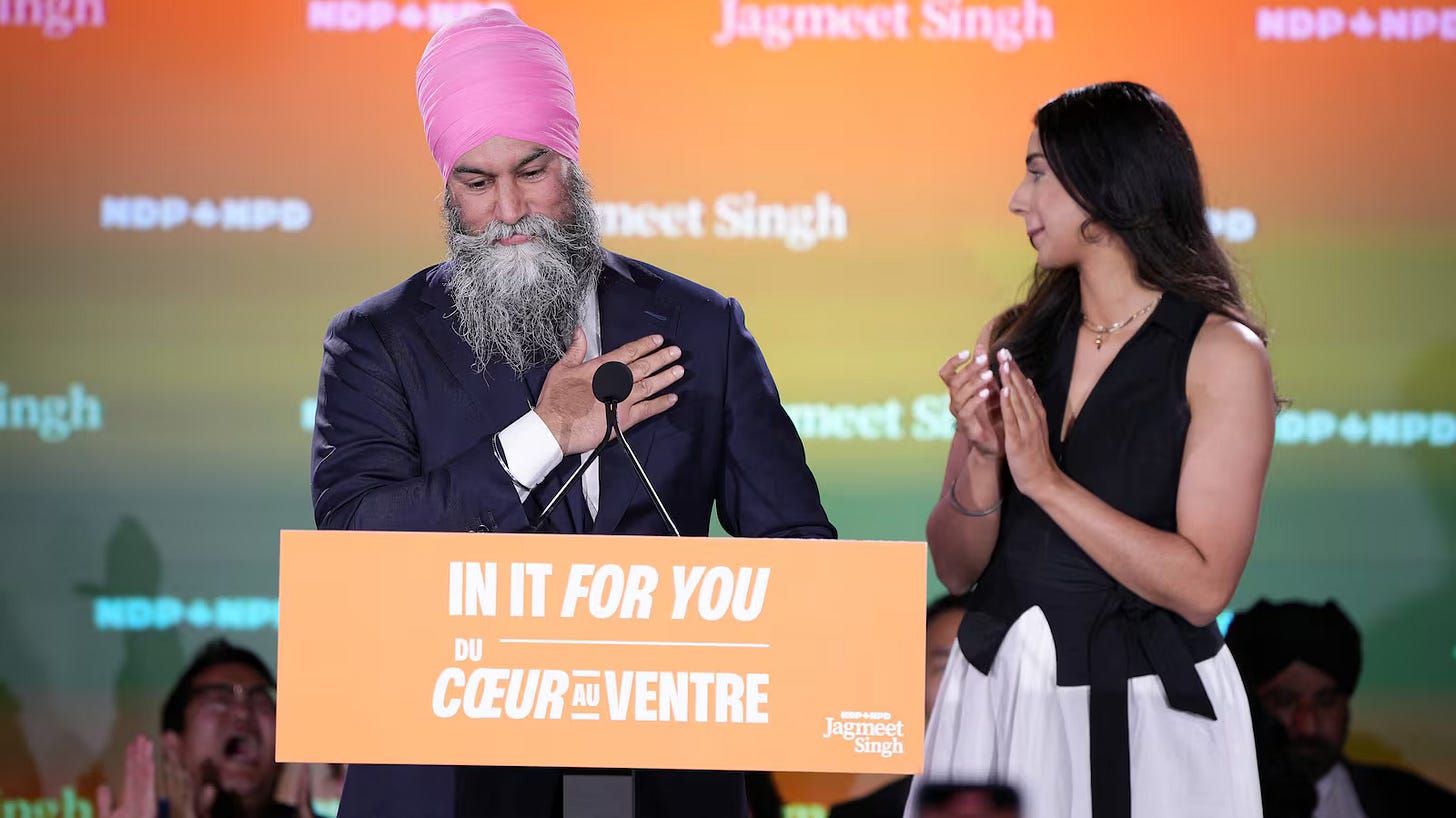
Jagmeet Singh
The NDP leader oversaw the decimation of his party due to his indefatigable support for Justin Trudeau. The NDP party is down to seven seats from 25, losing official party status and the millions of dollars that come with it. Singh lost his own seat and has resigned as leader.
The Liberal minority is four seats short of the majority it will need to get anything done. The NDP have seven seats. Will they sign up for another suicidal coalition with Carney’s Liberals? They’d be stupid to do so. That would just confirm, again, their own irrelevance.
I can imagine, however, some of those seven NDP MPs may well see a brighter future, with more political relevance, by exchanging their orange livery for scarlet letters and joining the government bench.
In the meantime, the NDP will persevere. It thrives in many of Canada’s provinces. It has a strong base of support from people who don’t really want the party to ever form a national government, so they won’t be too upset the party lost badly. The search for a new leader will be interesting. Will a provincial NDP leader step up? Will Charlie Angus and Niki Ashton try again? In the process, will the NDP double-down on its preternatural antisemitism or shed its shame?
Elizabeth May
Why?
What are they smoking in Saanich-Gulf Islands?
May held onto her seat in a relatively close three-way race that saw her win with 38.8% of the vote, against the Liberals at 31.8% and Conservatives at 25.4%
Maybe she’ll be the next Speaker of the House of Commons. Stranger things have happened. In fact, they just did.
Also noted…
Jamil Jivani
Jamil Jivani, MP for Durham in Ontario, went on a tear on CBC last night, slamming his former boss Ontario Premier Doug Ford (who introduced Jivani to politics.)
“He couldn’t stay out of our business… trying to make it about him. Trying to position himself as some kind of political genius that we need to be taking cues from.
I see Doug Ford as a problem for Ontario and for Canada. He’s not doing a great job running his province… It’s not like this guy is doing anything particularly well.
I’m speaking from experience. I tried to fix problems in this province and he kept getting in the way (with) all his goons around him all the time… he wouldn’t make anything better.”
– Jamil Jivani
In short, Jivani thinks it’s Doug Ford’s fault. It isn’t.
It reminds me of how Ontario’s Progressive Conservative Party never really understood why it lost four consecutive general elections between 2003 to 2014. Party mavens were convinced they just needed to do a better job explaining what they were about. In reality, the public understood exactly what the party was selling – they just didn’t want any of it.
Ontario PC leaders hearkened back to the victorious Mike Harris years, thinking they needed to be more conservative – as, in their minds, he was. But, Ontario wasn’t more conservative in 1995 and 1999. Harris didn’t win because he was conservative. He won because he was pragmatic. He recognized the challenges Ontarians were facing and offered (then delivered) practical solutions to them.
It wasn’t until Patrick Brown completely rebuilt the PC Party in Ontario with an entirely new, broad base of support that actually represents the face of modern day Ontario, that the party was able to win again. Doug Ford should thank him for that.
The Conservatives came very close. But, they have built an image that scares too many people. They need to change that. They need a leader who can inspire Canadians to follow them into a brighter future.
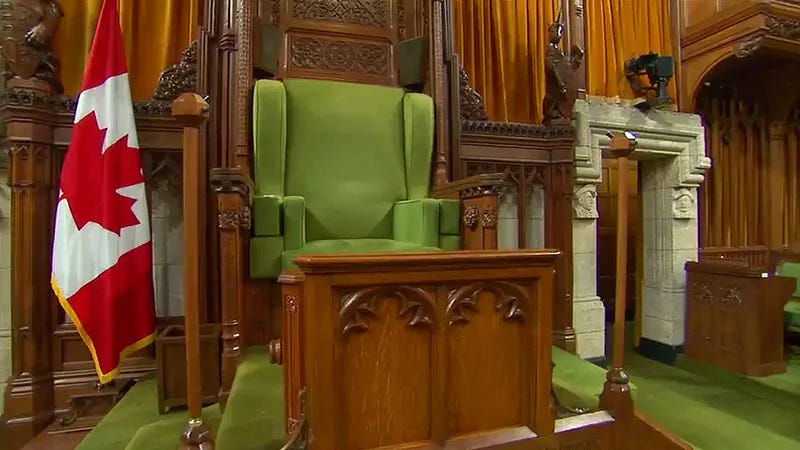
Speaker of the House
On the first day of the next parliamentary session, members of the House of Commons will vote to choose a new speaker. Who will it be?
In a majority government situation, the Speaker typically comes from the government ranks. They have the most members. They can win the vote. But, the Speaker does not vote on matters before the House of Commons except in the event of a tie – when, by tradition, the Speaker (no matter his/her party affiliation) will vote to uphold the government.
But, Carney looks likely to form a minority government. This means he can’t really afford to give up a government MP to sit in the Speaker’s chair. The Conservatives will not want to give up a key vote either. The Bloc will probably not want the job – they want to destroy Canada not manage its legislature. That leaves the NDP and the lone Green MP as contenders. Will the NDP provide the next Speaker of the House of Commons? Quite possibly.
Will Elizabeth May sit in the big chair? Perversely, it may be the best way to keep her quiet. All Canadians would be thankful.
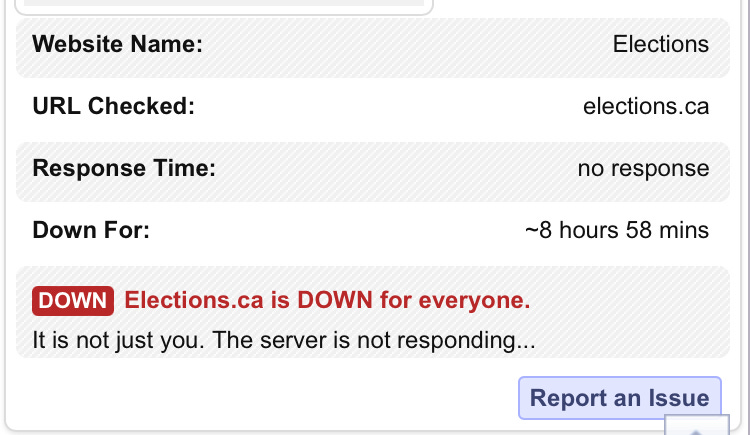
Elections Canada
Overall, Elections Canada did another spectacular job running a free and fair election that sets a standard for the rest of the world. Paper ballots were marked with pencils and pens. They were counted by hand. Under the supervision of representatives of each candidate. A victor was declared less than an hour after the last polls closed.
The process is managed by a non-partisan, arms-length agency that is not beholden to the government of the day, led by the only Canadian legally prohibited from voting.
The United States could learn a thing or two from how Canada elects its federal government.
But, it wasn’t all peaches and cream for Elections Canada. The elections.ca website sputtered, faltered and stopped yesterday. Not a good look.
Was it a malicious attack from China? Or Washington? Or, was it simply overloaded beyond expectations in the most consequential election in recent memory? If so, why were expectations so low? The Chief Electoral Officer has some ‘splainin’ to do.
Canadian Democracy
Canada’s “culture of democracy” is vital to the success of our nation. Without it, we will descend into autocracy and get swallowed up by a bigger, meaner dictatorship. See also: the USA?
What is the culture of democracy? It was explained to me, surprisingly, by a Russian special forces officer I worked with for a year in Mozambique back in 1993-94. We had many long conversations over nightly (every damned night!) chicken stew and rice. He worried about his country’s response to a faltering economy after their first democratic election. He wondered if Russians would persevere with democracy or demand a return to the old, familiar ways of communism. He marvelled at the “culture of democracy” in Canada where, when our preferred candidate loses, we are willing to remain peaceful and patient, waiting for our next opportunity to try again. Russians, he feared, would not be so patient. Or, so peaceful.
Our neighbours and cousins in the United States are losing this culture. January 6, 2021 is proof of that. There was a concerted, organized attempt to overthrow the results of a free and fair election in the world’s most powerful democracy. False allegations of election tampering continue to confound the confidence of voters there, weakening the culture of democracy in the USA and the world.
It’s important for all Canadians to rally around the results of this election. I am bitterly disappointed at the results, though not surprised. I’m very confident, though, the election was free, fair and the results recorded accurately. I’ve seen how we run elections. I know it’s impossible to “throw” one.
Voters are not stupid. They vote, as they should, in their own best interests. It’s up to candidates and parties to become the best interest of voters – not to berate voters for misunderstanding, ignorance or gullibility. This election proves the Conservative Party has improved, but more improvement is required if they are to win again. The Liberals, who had lost public confidence three months ago, have found a way to find it again. Is it deserved? Perhaps. Perhaps, not. We will see.
Either way, Canada today has the government it voted for.
How are you feeling the morning after?




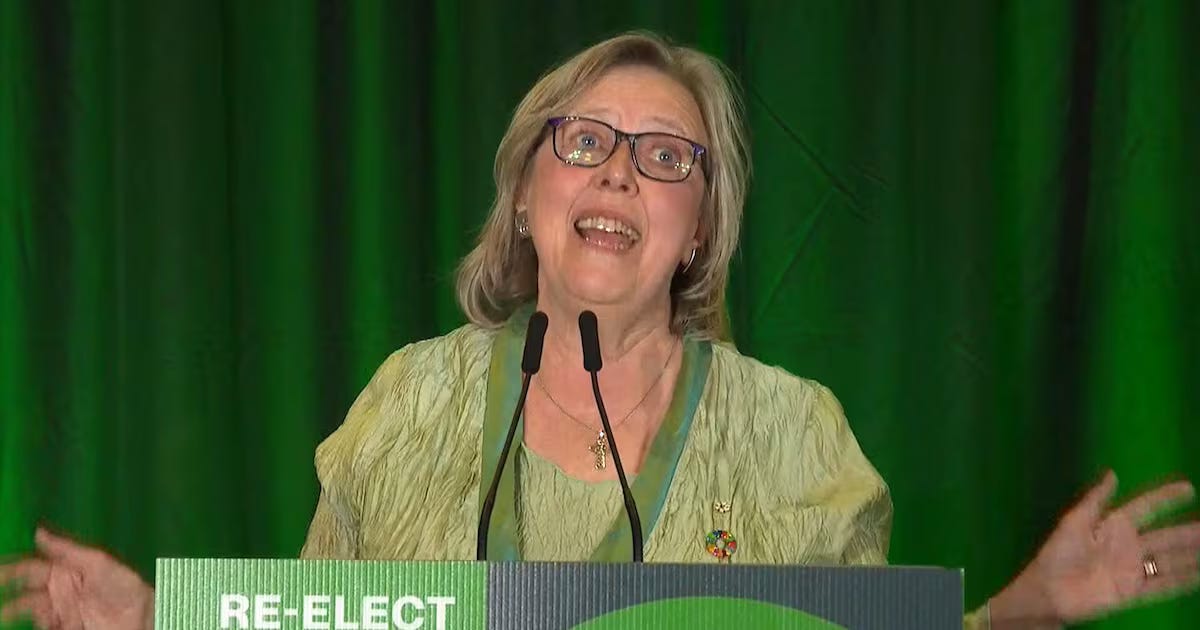
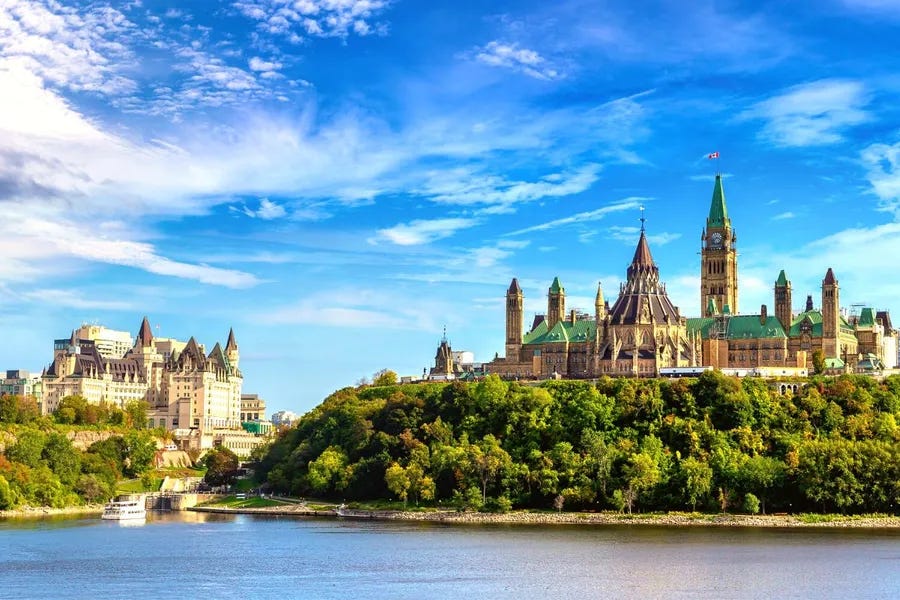
Good information in this post, thank you. I'm feeling somewhat depressed about the division in our Canada still and unsure of the future.
Excellent and wide view of Canadian Fed politics.
Given that most voters don't really pay attention, other than to the impact on their wallet (taxes and affordability) Poilievre might be recyclable.
However, his complete lack of achievements and agenda of 'get into power at any price' has throroughly branded him him as 'naked ambition in an empty suit, the political edition'.